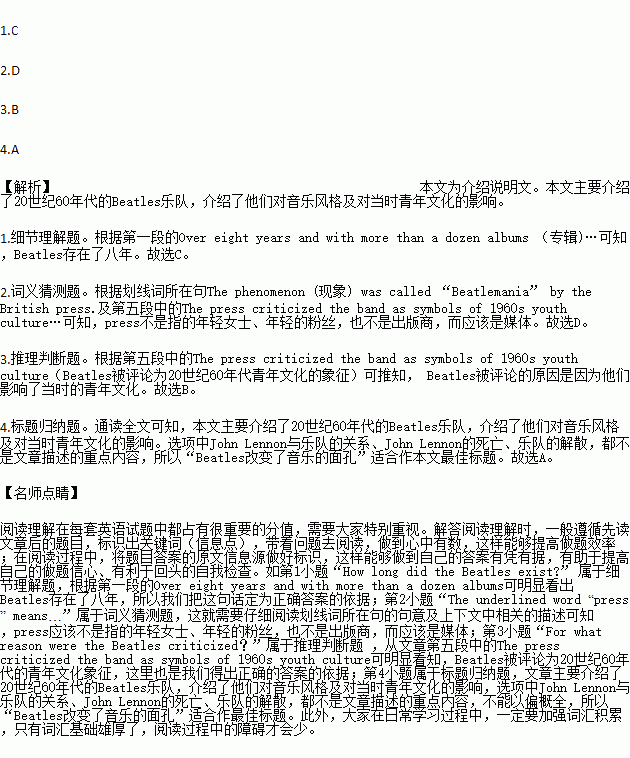题目内容
No other band has had the same influence in the world as the Beatles. Over eight years and with more than a dozen albums (专辑),four young men from Liverpool, England — John Lennon, Paul McCartney, George Harrison, and Ringo Star changed popular music and culture forever.
People in the UK became crazy about the Beatles in late 1963. The phenomenon (现象) was called “Beatlemania” by the British press. The term referred to the young women seen screaming at the band’s concerts. Beatlemania came to North America in early 1964, and the band’s popularity spread across much of the world.
Within five years, the Beatles’music changed greatly from their simple early hits like “She Loves You” and “I want to Hold Your Hand”.
The band wrote their own songs, explored new ways to create music and strived (奋斗)for high quality in every album they put out.
However, with their popularity came criticism (批评). The press criticized the band as symbols of 1960s youth culture, which celebrated freedom from traditional family roles.
In 1970, Paul McCartney announced he was leaving the Beatles. And the group quietly came to an end.
In the 70s, fans hoped for a reunion, but the group decided to follow their own careers with different degrees of success.
Fans lost hope with a tragedy; John Lennon was murdered in New York in 1980.
1.How long did the Beatles exist?
A. Five years. B. Six years.
C. Eight years. D. Thirteen years.
2.The underlined word “press” means _______.
A. young women of a country
B. young fans of a singer or film star
C. a business that prints and sometimes also sells books
D. reports in newspapers and on radio and television
3.For what reason were the Beatles criticized?
A. Because their own songs were not popular.
B. Because they influenced the youth culture.
C. Because of their own families.
D. Because of their roles in the band.
4.Which of the following would be the best title for the passage?
A. Beatles changed the face of music B. John Lennon’s death
C. John Lennon and his band D. The break-up of the Beatles
 备战中考寒假系列答案
备战中考寒假系列答案
